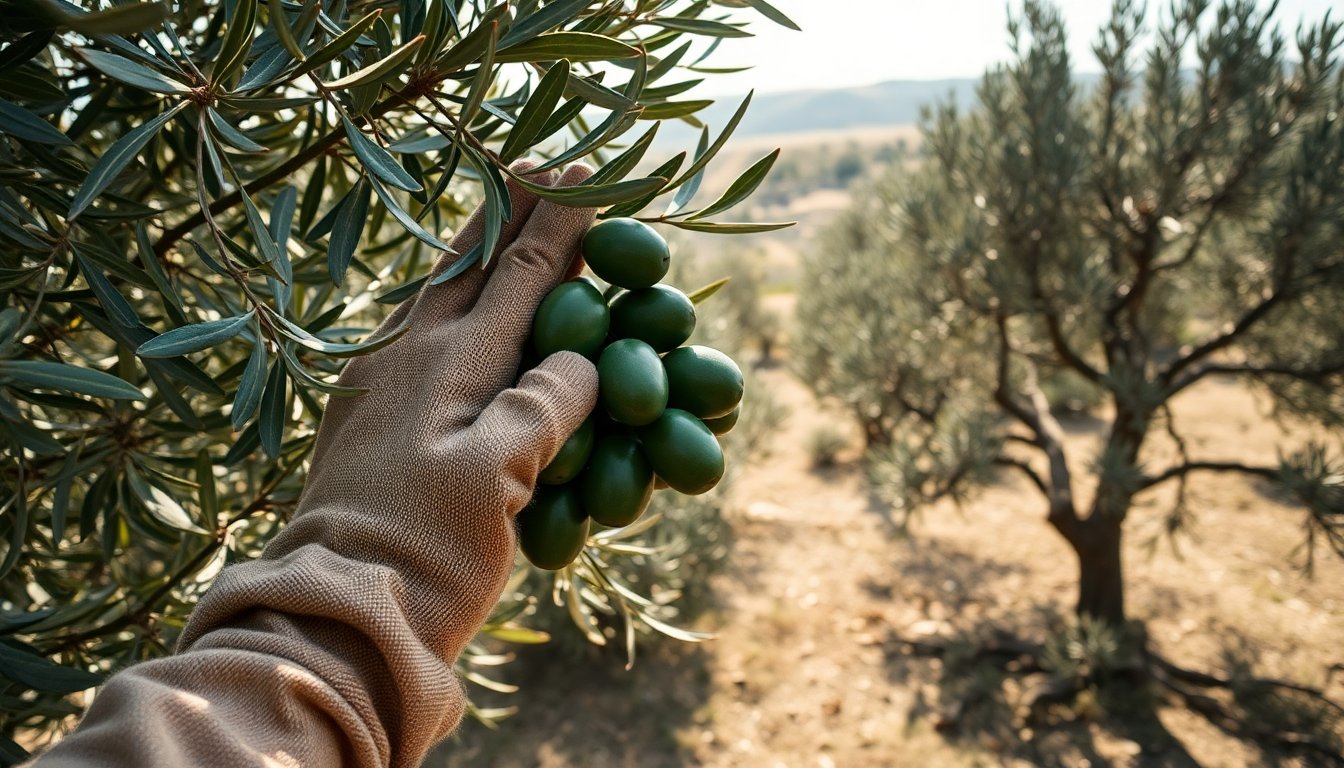Table of Contents
The olive harvest season, known as mawsim al-zaytoun, holds significant importance for Palestinian communities, especially in the occupied West Bank. This annual event represents a critical period for families who depend on the harvest for their livelihoods. It also reflects a profound cultural heritage passed down through generations. Each olive picked carries with it stories and traditional recipes from the teta, or grandmother, highlighting the fruit’s essential role in their identity.
Cultural heritage and practices
The olive tree has been integral to Palestinian culture for centuries, symbolizing resilience and a deep-rooted connection to the land. As families prepare for the harvest, they gather tools and gear up for the upcoming labor. The onset of the first September rains, referred to as talat al-matar, marks the commencement of this vital season, which is believed to bring blessings or barakeh for the year ahead. Over 100,000 families in the region rely on this harvest, occurring from October to November, which fosters a robust sense of community.
Olive varieties and their uses
Palestine boasts a diverse array of olives, each offering unique flavors and culinary uses. The Nabali, often called baladi (meaning ‘local’), is the most widely produced. Its rich, fruity flavor makes it suitable for both oil production and table olives. The Souri olive, smaller in size, is prized for its high-quality oil, which delivers a robust flavor that mirrors the challenging conditions of the hilly terrain where it thrives. Another noteworthy variety is the Mallisi olive, known for its distinctive taste and primarily utilized for oil extraction.
After harvesting, olives undergo a meticulous processing method to extract oil, a fundamental ingredient in Palestinian cuisine. This process starts with washing the olives to remove any debris, followed by crushing them to release their oil. Notably, green and black olives are derived from the same fruit but are harvested at different stages of ripeness. Green olives, picked early, produce a stronger, more bitter oil that is abundant in antioxidants. Conversely, black olives, harvested later, result in a milder, fruitier oil.
Economic importance and challenges
The production of olive oil in Palestine is vital not only for local diets but also for the economy. In 2019, around 177,000 tonnes of olives were processed, resulting in approximately 39,600 tonnes of olive oil. Key regions such as Jenin, Tubas, and the Northern Valleys are major contributors, underscoring the agricultural significance of this crop. However, the olive harvest faces increasing challenges, particularly due to the ongoing conflict and violence in the area.
Violence and disruption during harvest
This year’s olive harvest has been marked by significant violence, becoming the most violent season in recent memory. Reports indicate a troubling increase in attacks by Israeli settlers and soldiers. These incidents include vandalism against olive trees and intimidation of local farmers. The United Nations Office for the Coordination of Humanitarian Affairs (OCHA) has recorded more than 126 attacks by settlers across multiple towns, resulting in injuries and the destruction of thousands of trees.
The violence poses a threat not only to the livelihoods of Palestinian farmers but also to the cultural traditions tied to the harvest. Farmers often face restrictions, requiring them to obtain permits to access their land, particularly in areas adjacent to settlements. These restrictions significantly limit the time they can dedicate to caring for their crops, negatively impacting both the quantity and quality of the harvest.
The olive harvest represents resilience for Palestinians facing numerous challenges. Despite these obstacles, the traditions linked to this harvest strengthen community ties and affirm a profound connection to their land and heritage. As the olive trees endure, so does the spirit of those who nurture them, highlighting the enduring significance of this beloved fruit in Palestinian identity.


